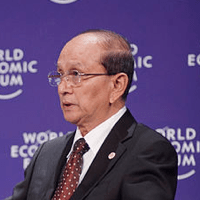Recently, authorities in Myanmar have made a series of moves that some observers have interpreted as signaling a new course under the government of President Thein Sein, elected in March. Prominent among these shifts are the suspension of the Chinese-sponsored Myitsone dam project on the Irrawaddy River and an amnesty that has freed more than 6,000 prisoners, including at least 200 political prisoners. Yet, with these moves, the government seems to be searching more for ways to ease China’s political and economic influence in the country than for avenues of democratic reform.
On Sept. 30, Thein Sein announced in parliament that the $3.6 billion Myitsone dam project “was contrary to the will of the people.” The statement came after a meeting between Myanmar Foreign Minister Wunna Maung Lwin and Derek Mitchell, the newly appointed U.S. coordinator on Myanmar, as well as U.S. Assistant Secretary of State for East Asian and Pacific Affairs Kurt Campbell and U.S. human rights official Michael Posner.
The decision was welcomed by Myanmar civil society and applauded by some Western governments, including the U.S. But in response to criticism from Beijing, Myanmar's vice president, Tin Aung Myint Oo, met with Chinese Premier Wen Jiabao on Oct. 20 in an effort to ease Chinese concerns. The project, it should be remembered, was merely suspended until 2015, not abandoned. And as the media in Myanmar have pointed out in the past two weeks, it is just one of many projects between the two countries, which have a long history of friendship and cooperation. For instance, bilateral trade stood at $2.9 billion in 2009, up 10 percent from the previous year.

